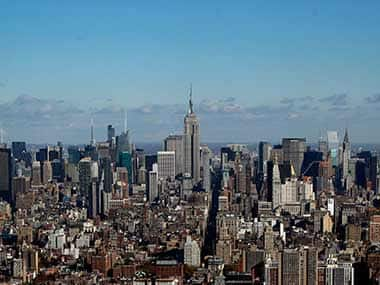New York: Earlier this week, New York City’s 9 million people elected a populist Democrat, Bill De Blasio as their new mayor. He trounced his Republican opponent Joe Lhota by a 3 to 1 margin. That ought to be par for the course in a city where registered Democrats outnumber registered Republicans by a margin of 6 to 1. Except that it is not. De Blasio is the first Democrat in 20 years to become New York mayor. His two predecessors, Michael Bloomberg (2001-2013) and Rudy Giuliani (1993-2001) were in fact politicians from the right-leaning Republican spectrum (Bloomberg became a right-leaning independent between 2005 and 2013). But what lessons could political trends from distant New York possibly hold for India? There are several. First, what made an instinctively left-leaning electorate vote in right-wing mayors for over two decades? In New York’s case the answer is simple. By the early 1990s, the city’s governance had collapsed. Its biggest symptom was a spiraling crime rate. New York was infamous the world over for its terrible law and order. Rudy Giuliani seized the governance plank and promised to bring order to the city. [caption id=“attachment_1219911” align=“alignleft” width=“380”]  Reuters[/caption] Twenty years of tough policing under Mayors Giuliani and Bloomberg have transformed New York into one of the safer urban centres not just in the US but also the world. According to a report in The Economist, there were 419 murders in New Work city in 2012, less than a fifth of the level in 1990 (and the population has grown by a million). Giuliani’s police force was more aggressive in arresting subway ticket dodgers and beggars and found that the same people were also responsible for more heinous crimes. Bloomberg has also authorized his police to operate to prevent crime. This has often led to accusations from human rights groups of racial profiling (a majority of people frisked and apprehended are either Africa-American or Hispanic), but the fact is the strategy has worked in reducing crime. None of these tough, controversial, strategies are palatable to left-liberal politicians but the people of New York decided that they needed tough action to counter crime. They voted for the Right. In India, the Right (most typically the BJP) has not made the case for being tough on crime as strongly as it ought to have. The law and order situation (common rime and terror) has deteriorated rapidly under the UPA. Citizens (whether left-leaning or right-leaning) are angry about it and would be open to persuasion to vote for a person or party who promises serious change. The BJP (in Delhi state and the Centre) is missing out on an important poll plank. There are other follow on benefits from an improvement in law and order. It helps the economy as safety is a pre-condition for investment. In New York it has greatly boosted tourism. Tourist arrivals have grown from 35 million when Bloomberg took office to 52 million a decade later. The other economic indicators of New York, including its unemployment rate and GDP have also shown significant improvement. That is why New Yorkers have continued to vote non-Democrats to the Mayor’s office for twenty years. The change was marked and sustained. Why then did the Republican candidate Joe Lhota lose so decisively in 2013? At least some of it has to do with personality. De Blasio’s charisma beat the dull Lhota. There is also the likelihood that the prolonged economic slowdown had led to voter frustration with incumbent politicians or their parties. More significantly (and perhaps dangerously), a complacency about the improved law and order situation may have set in among voters after two decades of reduced crime. IT may not be an election issue anymore because it has been so successfully tackled. It is incumbent on De Blasio not to let the scenario return to the awful past. But his populist leanings are ominous. The fact is that left-of-centre parties often come to occupy office after the hard work (not just on security but also economy) has been done by the other side. They can ride the wave of success for a while, but more often than not, the good work is undone in the medium term. If anyone is beginning to draw a parallel with the NDA and successor UPA Governments, they will not be wrong.
But what lessons could political trends from distant New York possibly hold for India? There are several.
Advertisement
End of Article


)
)
)
)
)
)
)
)
)



